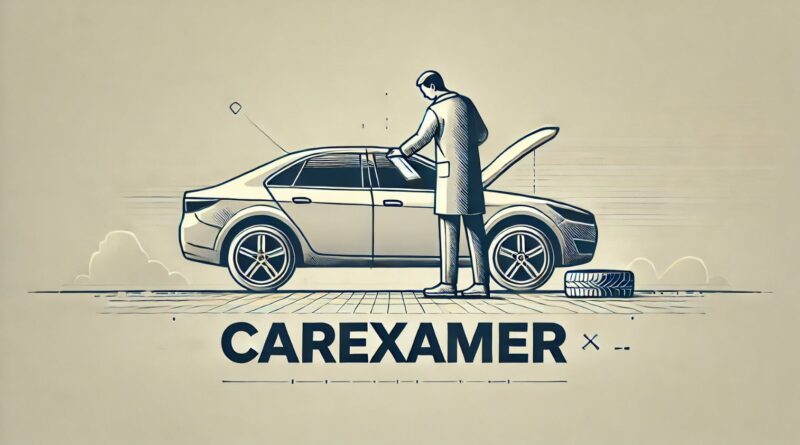Are Used Cars Reliable? What You Need to Know
In this guide, we’ll break down are used cars reliable and how you can make sure you’re getting a good deal. If you’re thinking about buying a car, you’re probably wondering: should you go for a new one or take a chance on a used car? New cars come with all the latest tech and reliability promises, but they can cost a pretty penny. Used cars, on the other hand, are often much more affordable, but the big question is, are they reliable?
The good news is, yes, used cars can be reliable—if you know what to look for.
What Makes a Used Car Reliable?
Several factors determine whether a used car is reliable or not. Here’s what you need to consider:
1. Maintenance History
One of the biggest indicators of a car’s reliability is how well it’s been maintained. A car with regular oil changes, fluid top-ups, and general care is far more likely to give you trouble-free driving. When buying, always ask for the service history to see how the car’s been treated.
2. Age and Mileage
Age and mileage go hand in hand when it comes to reliability. Naturally, a car with lower mileage is often in better shape. However, an older car with higher mileage isn’t automatically unreliable, especially if it’s been well cared for. A five-year-old car with 50,000 miles could be in better shape than a 10-year-old car with 150,000 miles.
3. Brand and Model Reputation
Some car brands and models are just known for being more reliable than others. For example, brands like Toyota, Honda, and Lexus often score high in long-term reliability. Do a little research on the specific make and model you’re eyeing to see if it has a good reputation for staying dependable over time.
4. Get a Thorough Inspection
Before buying any used car, it’s always a good idea to have it inspected by a mechanic. Even if everything looks fine on the surface, a professional can spot issues that aren’t immediately obvious. This step can save you from buying a car with hidden problems that could end up costing you.
5. Certified Pre-Owned (CPO)
If you’re buying from a dealership, look into Certified Pre-Owned (CPO) cars. These vehicles have gone through detailed inspections and often come with extended warranties, so they’re generally more reliable than other used cars.
How to Check the Reliability of a Used Car
Here are some tips to help you assess if a used car is reliable before you make the purchase:
1. Get a Vehicle History Report
You can use services like CARFAX or AutoCheck to get a detailed report on the car’s history. This will tell you if the car has been in any accidents, how many owners it’s had, and whether it’s been well maintained. A clean history report is a good sign of reliability.
2. Check for Recalls
It’s worth checking if the car has been involved in any recalls. Some recalls are for minor issues, while others can be for serious safety concerns. You can find this information by entering the vehicle’s VIN number into the National Highway Traffic Safety Administration (NHTSA) website.
3. Inspect the Car Yourself
While it’s important to get a mechanic to inspect the car, you should also take a good look yourself. Check for signs of wear and tear, like rust, strange noises, or fluid leaks. If the car looks like it hasn’t been well cared for, it could mean future reliability issues.
Why Buying a Reliable Used Car is a Good Idea
Choosing a reliable used car has some real benefits:
- Cost Savings: Used cars are much cheaper than new ones, and if you pick a reliable model, you avoid the biggest hit of depreciation that new cars experience in the first few years.
- Lower Insurance: Insurance rates for used cars are typically lower than for new cars, helping you save even more.
- Proven Reliability: Some used cars have a reputation for lasting hundreds of thousands of miles. By picking a reliable brand and model, you can enjoy a long-lasting vehicle at a fraction of the cost of a new one.
Potential Downsides
Of course, buying a used car isn’t without risks. Here are a few things to consider:
- Unknown History: Even with a vehicle history report, you might not know everything about how the previous owners treated the car. Hidden issues can pop up later.
- More Maintenance: As cars age, they need more maintenance and repairs. While a reliable used car can still save you money upfront, be prepared for higher upkeep costs down the road.
- Shorter Warranty: Unless you buy a Certified Pre-Owned vehicle, most used cars won’t come with a warranty. This means any repairs after purchase will likely be out of your pocket.
The Bottom Line: Are Used Cars Reliable?
Yes, used cars can be reliable if you’re careful about what you buy. Look for a car with a good maintenance record, research its reputation, and get it inspected before buying. Age and mileage matter, but a well-maintained older car can be just as reliable as a newer one.
By doing your homework and choosing carefully, you can find a dependable used car that fits your budget and keeps you on the road for years to come.
Buying a used VW. Buying used vauxhall, BMW, Jaguar, Ford, Volvo, Range rover, Bentley, Aston Martin, Porsche, Ferrari, Lamborghini, Maserati, Hyundai, Tesla, Honda, Pagani

